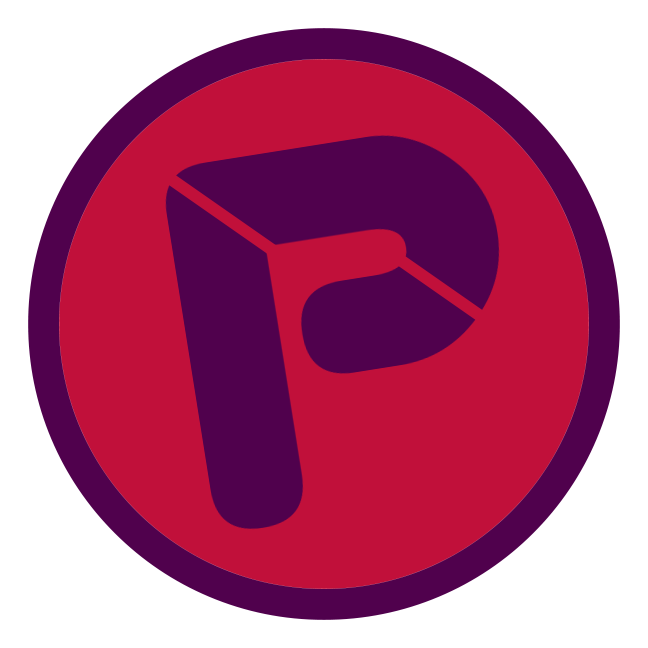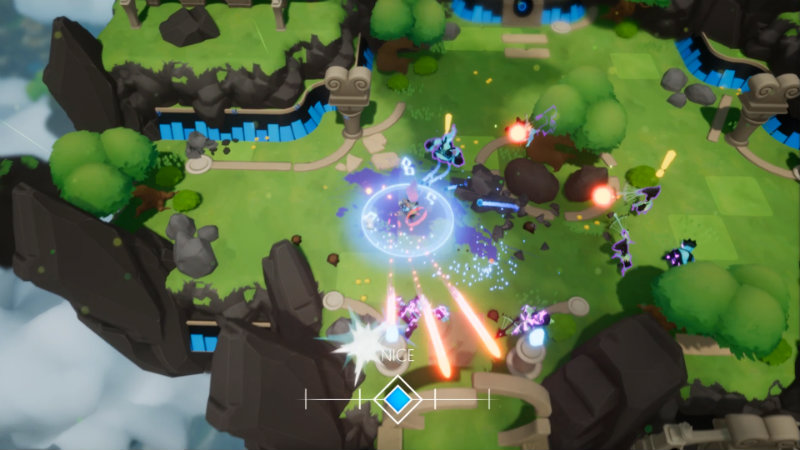Drastic Games is the indie studio behind the upcoming musically driven game, Soundfall. The Epic Games alumni have been super busy the last few weeks showing off the game to the players at different events. They did have some time to sit down with us (over the internet) and chat about Soundfall, their studio, and the development process.
J: Hello! Thank you for taking the time to talk to us today. Let’s jump right into it! Soundfall is a musically driven dungeon crawler that features some intense looking gameplay, stunning visuals and some super catchy tunes. What made you guys decide on creating this type of game? Was there any specific motivation/inspiration?
DG: Our pleasure! When we first left Epic Games in late 2016, our initial plan was to come up with a simple game concept that we could hammer out in 6 months or so, and made a quick prototype over the course of a weekend gamejam.
We threw around a few of initial ideas, including a simple rhythm game and a 2D space shooter along the lines of Gradeus or Ikaruga. Around that time, we had also been playing a lot of Audioshield, so procedural rhythm mechanics were also fresh on our minds. These ideas started to mix together, and we shifted the shooter element to be twin-stick because it allowed for a lot more versatility if we wanted to pivot the project or use systems for a different type of game. At the end of our gamejam, we found that our little prototype was a lot more promising than either of us ever expected!
J: The game seems to revolve around a metronome-esque mechanic (from what I’ve seen in the trailer). Does the beat dictate how you play or control your character? Can you shed some light on that for us?
DG: Good observation! In Soundfall, performing actions to the beat of the music makes those actions significantly more powerful. Firing your blaster or swinging your sword on-beat makes those attacks do twice as much damage, increases your attack range, and adds some additional knockback. Dashing on-beat is much faster, and has no recovery time. We want these on-beat actions to be satisfying to chain together, so players feel like they are dancing or beatboxing to the music!
There’s plenty of other abilities we haven’t shown off just yet that are also enhanced by acting on-beat, as well as puzzle and traversal elements in levels that players can interact with on-beat. However, we aren’t heavy handed about forcing players to play on beat. Movement is completely free form, and all of the actions we talked about can be performed off-beat as well – they’ll just be less powerful.
J: I am very interested in the story behind Melody and why she is in Symphonia. I have a theory, but was curious if you could give us a little more backstory or maybe just expand on the land of Symphonia?
DG: I think fairly early on we latched onto the idea that music transports us. It elevates us and infuses us with an energy an emotion that wasn’t there before. In Soundfall we took that literally. Symphonia, the world Melody is transported to is the personification of music, and in many respects is the same place we all go when we get lost listening to our favorite jams.
When it comes to Melody specifically I don’t want to give anything away, but everyone listens to music for a reason. We’re all really excited for the game to come out so we can dive into this issue in more detail.
J: Soundfall seems very unique in terms of how you play the game, did you guys ever have any other ideas of games you wanted to create before settling on Soundfall?
DG: Oh, yeah. We threw around a whole lot of ideas that never really stuck to the wall. There were a lot of compromises too. Elements of a pitch that really excited one of us might not resonate with the other. But we’d learn something from the discussions and would try again. Eventually, we landed on rhythm as a key pillar, and that’s when things really took shape. Even still, we considered doing everything from an Ikaruga-style shooter, to a mobile Guitar Hero clone before settling in on a rhythm-driven twin-stick shooter.
J: With two veterans like yourselves at the helm, I can imagine the development process is as smooth as it can be. Have you guys experienced any hiccups along the way?
DG: Hahaha! It doesn’t matter how talented or experienced a team is – there are always plenty of hiccups in game development!
On the personnel side, finding talent on the art side when the game was in its infancy was very difficult. People weren’t “sold” on the idea yet, and we were on a shoestring budget. We shot out literally hundreds of cold emails and heard back from maybe 1 in 10. On the technical side, we’ve had more than our fair share of obscure, hard-to-trace showstopper issues that conveniently popped up right before demo deadlines.
One of our biggest and most stressful was the leadup to our demo at EGX in the UK. About half of our demo equipment got shipped to the wrong location within the massive expo center and was signed for with just the letter “C.” We spent nearly an entire day tracking it down! And that was the good part – the other half of our gear didn’t show up at all! We spent another day trying to sort out last-minute replacements for a TV stand and three TVs, which ended up arriving just 20 minutes before the show floor opened!
J: How has it been going from a large company in Epic Games to starting your own studio and developing your first game?
DG: While we were at Epic, our favorite time of development was always the very early stage of the project, when the team is small and focused, and creativity is flowing. Now that we’re indie, we get to have that incredibly fulfilling small team experience throughout development.
J: What is the biggest advantage, in your experience, with running your own studio?
DG: Probably the biggest advantage to running our own studio is the ability to set our own goals. Everyone has different motivations and ambitions, and a company’s culture is melting pot for those different wants and needs. There’s not right or wrong here, they’re just different, and it’s important to be sensitive to those differences. But, in larger teams this inevitably means compromising. When you’re running your own studio, you have a great deal more control when it comes to setting those priorities and ensuring new team members share your vision.
J: So I noticed on your bios that you worked on Paragon and I have to ask, as a massive Paragon fan (RIP), which character was your favorite? Greystone was my main squeeze.
DG: I was a big fan of Gideon and Sparrow, as much for the art as anything else. The tech and effects artist at Epic really crushed it with those two and the look of the characters really pulled me in.
J: I know you guys have been doing a good bit of traveling showcasing Soundfall to the public and you generated some solid buzz for the game. What’s the next step for Soundfall?
DG: We’ve recently kicked off a crowdfunding campaign on Fig! People can support Soundfall development by pledging to our campaign for rewards, such as the game itself (when we release), access to our demo, or other cool goodies like a vinyl soundtrack or Discordian plushie. But, what makes Fig really exciting to us is that fans can invest in Soundfall for a share of the profit when we release the game!
J: I like to ask this to all the devs I have the pleasure of interviewing, what advice would you guys give to people looking to get into game development?
DG: Start making games! Seriously, the only way to see if game development is something you really want to do is to start doing it. Download Unreal or any other game engine of your choice and start reading and watching tutorials, playing with and modifying examples, and making small projects. Once you start having a handle on things, re-creating an existing simple game, such as an 80s arcade game, is a fantastic learning experience. There’s a huge temptation to run before you can walk. Don’t give in to the dark side. Until you can do a good job with Galaga, you don’t stand a chance at that epic MMO you’ve been planning.




